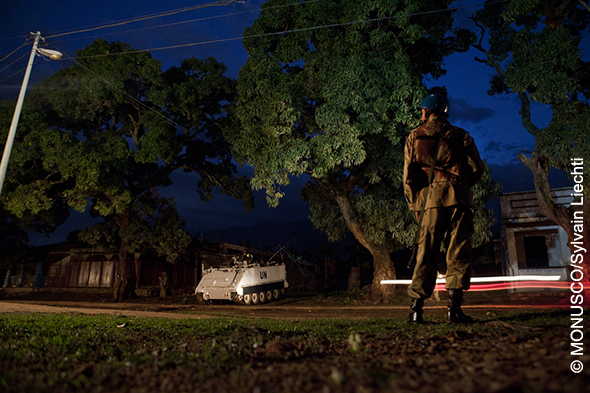How to negotiate with pirates? A short guide for Europeans

(BRUSSELS2) How could the EU better negotiate with Somali pirates so as not to ruin itself with ransoms and thus make piracy less attractive? It's a bit like the outline of Alix Willemez's Master's thesis that we received (and read). By analyzing the process of negotiating the payment of ransoms, this student from the College of Bruges makes some recommendations. By the way, this is the title of the memoir: “A short guide to negotiations with Somali pirates for European negotiators”. Negotiation is a part of the "comprehensive approach" that the EU seems to have forgotten, she explains. And it is time for the European Union to look into it.
First recommendation: Create a European negotiation unit
Assuming that the negotiations for the payment of the ransom are carried out on a national basis (whether directly by the company owning the captured boat, by a government agency such as GIGN, or even by an independent negotiator), and there is no coordination at European level, the main recommendation is to create a European Union Crisis Management Team (EU CMT) specialized in piracy cases. The objective is to provide a coordinated response to each ransom demand, in order to reduce it as much as possible. This would also help to gather information on the pirates in order to better understand them and thus facilitate negotiations.
Better communicate with hackers: why not use Skype?
There is a harmful paradox for the negotiations underlines the author of the memoir. While the area of action is very well covered by telecommunications, the negotiators do not use all the modern means at their disposal. So why not use Skype? Eye contact strengthens the relationship between the negotiator and the hacker, and allows you to read the emotions in the face. In addition, it is necessary to seek information on the pirates to whom one speaks: by using social networks, which the latter use more and more since piracy has become an organized activity with increasingly considerable logistical means. In this regard, "the EU must be a modern institution, not left behind by a bureaucratic structure".
Speaking the language of pirates: not useless...
The European team should always have a Somali native-speaker as well as a "cultural expert" on the country to help the negotiators. At least for "say a few words in Somali"and thus help to establish a better relationship between the negotiators and the pirates...
Use the experience of former hostages at European level
Instead of doing national debriefings with the freed hostages, these debriefings should be done under the supervision of the EU, with the European negotiation team present to take information on the way of life of the pirates on board the ships. . EUNAVFOR already recommends this, without however providing the necessary means for this coordination.
Better manage the payment of ransoms and trace the resulting financial flows
Regarding the payment of the ransom, one possibility would be to create an EU agency to manage this, so that this activity does not become a market for certain companies. But that would mean recognition of the payment, which states do not want. They do not officially admit having paid a ransom, preferring to avoid (as far as possible) any publicity that could make this activity even more attractive. Another possibility would then be to dedicate two Atalanta planes to delivering the ransom. It is also necessary to investigate to trace the financial flows linked to these ransoms: this should be the role of Europol and Interpol, according to this memoir.
Make sure the hackers release the hostages as planned
In order to be sure that the pirates release the hostages after the ransom has been paid, Atalanta's ships should escort the boats to port and thus guarantee that the hostages will not have to start new negotiations (and pay an additional ransom ) to be effectively released. NB: this action of accompaniment and protection is already ensured either on a national basis, or if the boat is not available by one of the European or NATO ships.
Allow VPDs and attack hackers when possible
Finally, the student encourages the European Parliament to legislate on the use of on-board protection teams (Vessel Protection Detachment, VPD) so that they protect at least the largest vessels carrying the most expensive cargoes. In addition, she considers attacking pirates when it is not too dangerous for the hostages, "on the French model"(referring to the intervention for the release of the hostages of Ponant). Similarly, one should not pay too easily, "as Greece and Italy do".
In conclusion, Alix Willemez recalls that a global, truly global approach is necessary. In particular, it calls for developing the use of VPDs, which should reduce Atalanta's costs and allow it to continue after 2014. But also to develop judicial and penal capacities in Somalia.
Download the brief here.

Stop! We put everything under the term global approach! But by wanting to do everything, we manage to do nothing!
Let's launch EUCAP, boost EUTM, give resources to Atalanta, coordinate our efforts on what exists to make concrete progress (MASE, MARSIC), tackle the problems of the judiciary head-on, develop concrete projects for local economies, etc. .
Governance, security, development= comprehensive approach for restored human security.
The mixing of genres when we talk about the EU is harmful. In the EU, too many “comprehensive” plans are on the way to killing the comprehensive approach conceived 10 years ago by Cooper